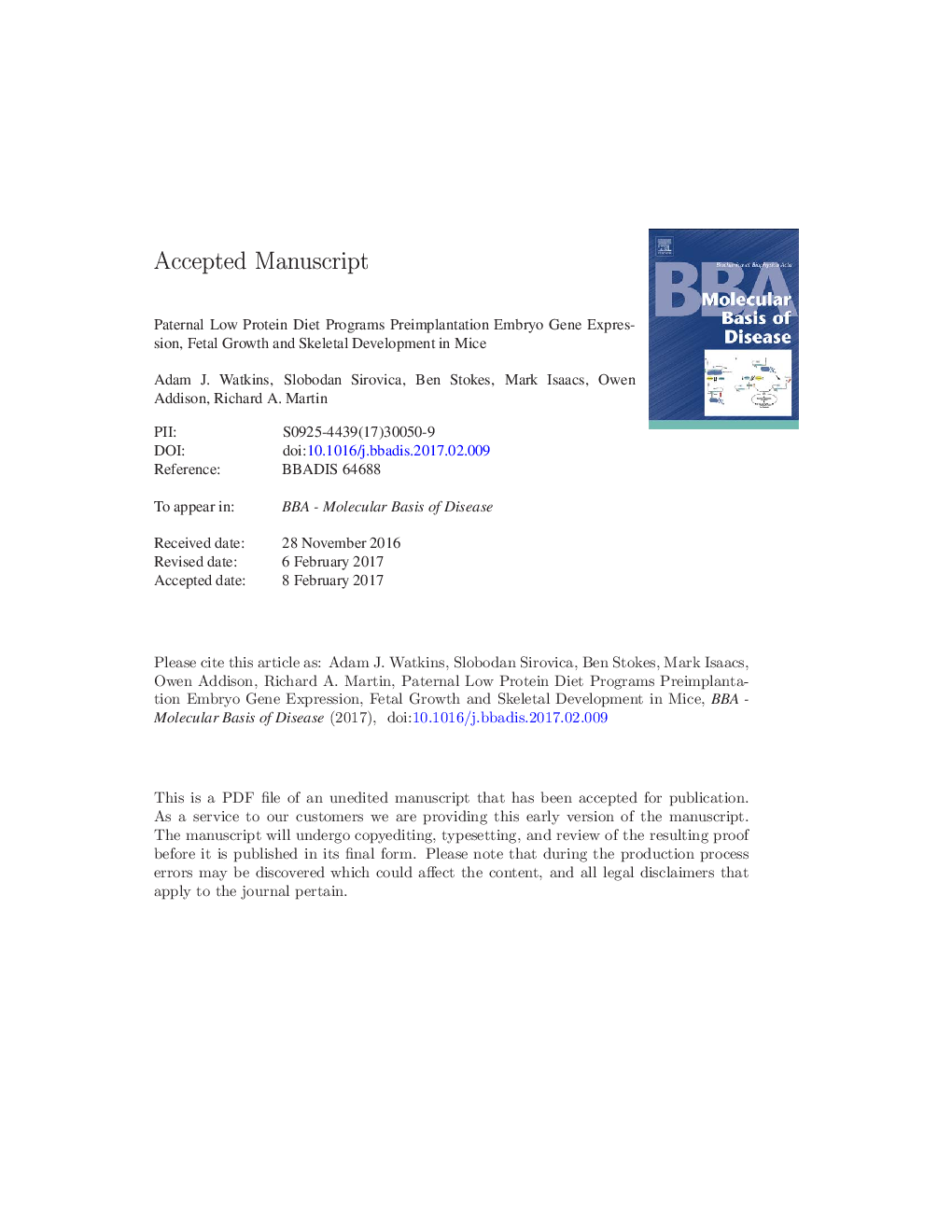| Article ID | Journal | Published Year | Pages | File Type |
|---|---|---|---|---|
| 5501040 | Biochimica et Biophysica Acta (BBA) - Molecular Basis of Disease | 2017 | 56 Pages |
Abstract
Defining the mechanisms underlying the programming of early life growth is fundamental for improving adult health and wellbeing. While the association between maternal diet, offspring growth and adult disease risk is well-established, the effect of father's diet on offspring development is largely unknown. Therefore, we fed male mice an imbalanced low protein diet (LPD) to determine the impact on post-fertilisation development and fetal growth. We observed that in preimplantation embryos derived from LPD fed males, expression of multiple genes within the central metabolic AMPK pathway was reduced. In late gestation, paternal LPD programmed increased fetal weight, however, placental weight was reduced, resulting in an elevated fetal:placental weight ratio. Analysis of gene expression patterns revealed increased levels of transporters for calcium, amino acids and glucose within LPD placentas. Furthermore, placental expression of the epigenetic regulators Dnmt1 and Dnmt3L were increased also, coinciding with altered patterns of maternal and paternal imprinted genes. More strikingly, we observed fetal skeletal development was perturbed in response to paternal LPD. Here, while offspring of LPD fed males possessed larger skeletons, their bones comprised lower volumes of high mineral density in combination with reduced maturity of bone apatite. These data offer new insight in the underlying programming mechanisms linking poor paternal diet at the time of conception with the development and growth of his offspring.
Keywords
AMPKμ-CTSXRDFWHMDOHaDNPDLPDmTORC15′ AMP-activated protein kinaseDevelopmental programmingMicro-computed tomographyFetal growthembryonic daylow protein dietDevelopmental origins of health and diseaseBone healthfull width at half maximumPlacental functionmechanistic target of rapamycin complex 1Synchrotron X-ray diffraction
Related Topics
Life Sciences
Biochemistry, Genetics and Molecular Biology
Ageing
Authors
Adam J. Watkins, Slobodan Sirovica, Ben Stokes, Mark Isaacs, Owen Addison, Richard A. Martin,
